All Activity
- Past hour
-
-
From this twofer CD. Tjader plays drums here. Next is:
- Today
-
-
Before re-filing this downstairs in the LP shelves I decided to listen to side B again. This is a corker of an LP and boy does this pressing sound good. J&K “Stone Bone” A&M/CTI LP (RSD release)
-
-
-
RIP. Seeing him live was a great double pleasure: great music, great stories.
-
Continuing on in the “Enjoying the Ride” 60th Anniversary box set. Capitol Theatre, Port Chester, NY (2/20/71) 250×158 13.9 KB
-
I was surprised he was 87 as well. I saw Galper a few times over the years but it's been a long time since I last saw him perform. I really enjoyed his playing with Phil Woods.
-
He had been living in upper state New York around Callicoon, right on the Pennsylvania border. I saw on FB that he then had a afternoon gig at Rafter's Tavern, a local spot. caught him once there with Billy Mintz on drums. Can't remember who was on bass. Fun hour.
-
I was personally a little surprised that he was 87 years old. I had the impression that he was mainly active in the 1970s, so I had assumed he was born in the late 1940s or early 1950s (for example, his one-time bandmate Michael Brecker was born in 1949), but he was actually a generation older than them. It makes sense, considering he was active in Chet Baker's band in the 1960s. Personally, I think Now Hear This, featuring the powerful lineup of Japanese-born Terumasa Hino, Cecil McBee, and Tony Williams, is his masterpiece. Galper, despite being the leader, doesn't stand out much in a way, which might be disappointing for him, but it's wonderful jazz. RIP.
-
I saw him once in NYC. I like his playing. He was 87. RIP Hal.
-
Sax Expat: Don Byas
Big Beat Steve replied to nighthawk68's topic in Jazz In Print - Periodicals, Books, Newspapers, etc...
This thread is taking on psychedelic overtones ... 😄 But getting a bit more back to the topic on hand: First of all, the careers of MANY musicians cannot be separated from their off-stage lives (and I am NOT even referring specifically to drug addiction and everything that this brings with it). So obtaining knowledge and an understanding of the "times and life" (with a fairly big accent on the TIMES!!) of a musician and the style of music he (or, yes, she) performed in really is a key to understanding the essence of the music (his music) too. Anything short of that IMO misses the road to understanding (and taking the reader along) the person's biography and musical accomplishments. And no, pea-counting musicological analyses geared at advanced music practitioners or musicologists do not make up for this at all. Which is where the Don Byas bio IMO is a mixed bag, though the book overall is good and definitely worth reading. As Knauer has hinted at in his review, musical analyses are slim (and yes, they COULD be done so that a layman and non-musician understands them too or at least gets a close enough impression of the contents and what to expect from any given session - it has been proven countless times before). But in general, the author's approach to the subject at times is an odd one. Apart from a few errors in the presentation of persons, times and places (which can happen but are avoidable - sloppy proofreading, maybe?), what baffled me is how the author over and over again seems to have made every effort to derail the reader's immersion into the narrative of the text, i.e. into the life and career of Don Byas. What is the point of using soooo many quotes and citations (and therefore footnotes) for facts and events that are established, undisputable facts and common knowledge and do not need any quotes or citations at all - ever - to prove to ANYONE that the facts are as the author says? (Though, maybe, to a professor who is to pass judgment on a Ph.D. thesis submitted to him ... But could this ever have been the purpose of THIS book? ) It would require a separate post to list a handful of blatant examples to underline my quibbles, but yes - this did bug me. Because this book by no yardstick whatsoever could ever have been aimed at the total layman in the history of jazz. And scholarly self-navel gazing at showing to the reader how the author has diligently and painstakingly worked his way through so many reference sources cannot have been the point either? Above all because enough quotes from and references to specialist sources remain anyway that definitely do merit their footnotes. -
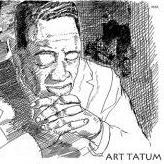
Sax Expat: Don Byas
EKE BBB replied to nighthawk68's topic in Jazz In Print - Periodicals, Books, Newspapers, etc...
Google translator has done too much harm… 😝 -
👍
-
-
Here's a suite of the score Schifrin wrote for the Exorcist, that was turned down by Friedkin. Lalo called it a setup by Friedkin, because the studio told Friedkin that the score and the scenes in the trailer were too much for audiences. It was scaring the hell out of them, and they told Friedkin to tell Schifrin to tone the score down a lot. But Friedkin, being the weirdo that he was, refused to tell Schifrin that the score was too bombastic, and at the final studio recording, he led Schifrin into a trap where the executives heard the same music from the trailer. Friedkin walked out of the recording studio after a few music sequences, and told Schifrin to meet him privately in the head of the Warner Bros. Music Dept. Schifrin was hearing plenty of horror stories about what was going on- Friedkin's temper tantrums, dismissing friendly advice, firing his collaborators, etc... "He started to scream, foam was coming out of his mouth. "Where are the two orchestras of strings? This is not what we talked about! This music is not going to be in my film!!" he told Schifrin. Lalo could see that WF was out of control, and there was no reasoning with him, so he remained quiet to avoid a physical confrontation. Larry Marks, who was the head of the Music Dept., told LS that WF had already had a group in mind, Tubular Bells- and the help of a composer, Jack Nitzsche. William Blatty cake to LS' defense and made public declarations to the press, and the fired ex-film editor confirmed Blatty's comments about the setup. All Friedkin could respond with was that LS had written a score with "Mexican Maracas"! From LS' Autobiography.
-
Well, they had people like George Barrow, Charlie Fowlkes in the band, and I forget the rhythm section, but the conductor/pianist knew what he wanted, and told them how to play her show.
-

What rock music are you listening to? Non-Jazz, Non-Classical.
BFrank replied to EKE BBB's topic in Miscellaneous Music
I'm listening to these guys for the first time in a LONG time. I forgot how great their song are. On one hand they're LA Punk 80s-90s, but on the other they're talented musicians with extremely well rehearsed vocal harmonies. On top of that, their singer, Greg Gaffin has a (copied from Wikipedia): "BA Biology, BS Geology and master's in Geology at UCLA. In 2003 he went on to earn his PhD in Zoology from Cornell University" Now playing: -

What rock music are you listening to? Non-Jazz, Non-Classical.
GA Russell replied to EKE BBB's topic in Miscellaneous Music
Amen! -
Plus they actually COULD play R&B?
-
Well, the joke was supposed to be that "Is he gonna be playing that old shit" was meant to answer with WHICH old shit? But it turns out that the actual answer is ALL of them! And that's how it should be, he's self-validating ALL of it, so hell yeah, although I do wish he would revisit "I Thought It Was You" in some fashion.
_forumlogo.png.a607ef20a6e0c299ab2aa6443aa1f32e.png)
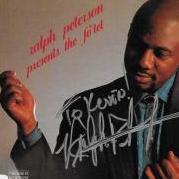

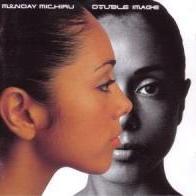


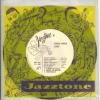
.jpg.69e7bca1bbdc992444e27851d349869b.jpg)
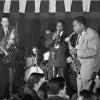

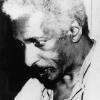
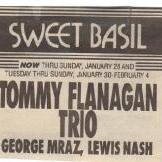
.jpg.05c2062f83d4ab25ced20aba8a31eb47.jpg)